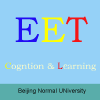-
Howard Gardner's multiple intelligence theory
普通类 -
- 支持
- 批判
- 提问
- 解释
- 补充
- 删除
-
-
introduction
LINGUISTIC AND LOGICAL & MATHEMATICAL INTELLIGENCES have long shared the spotlight in education. Traditionally, these two intelligences are the main focus of lessons taught in a classroom. In fact, most evaluation or assessment practices base a student’s body of knowledge solely on the measured skills of those intelligences.
However, Howard Gardner (1983) proposes in his book "Frames of Mind" that there are eight different intelligences that deserve equal recognition. This article will describe in detail each of these intelligences.
Howard Gardner’s Multiple Intelligences: All of us have varying degrees of each intelligence. Remember that instructional practices should involve all intelligences, so that everyone has the opportunity to learn.
-
Linguistic Intelligence
This intelligence involves the ability to read, write, and communicate with words. A student may be expected to use their linguistic skills to communicate what they already know or what new information they have learned.
-
Logical & Mathematical Intelligence
This intelligence requires the ability to look for patterns, reason, and think in a logical manner. It can also be associated with scientific thinking.
-
Visual & Spatial Intelligence
This intelligence is the ability to think in pictures and visualize outcomes. This skill should not be thought of only in visual terms because Gardner believes that blind children develop spatial intelligence.
-
Musical Intelligence
This intelligence gives a person the ability to make and compose music, sing, and use rhythm to learn. It is important to note that functional hearing is needed for a person to develop this intelligence in pitch and tone, but not so for rhythm.
-
Bodily & Kinesthetic Intelligence
This intelligence encompasses the ability to use one's body movements to solve problems. This may contradict the belief that mental and physical activities do not relate to each other.
-
Interpersonal Intelligence
This intelligence involves learners to use their social skills and good communication skills with others. They may also show the ability to empathize and understand other people.
-
Intrapersonal Intelligence
This intelligence is the ability to reflect, analyze, and contemplate problems independently. A person may look upon himself or herself to assess one's own feelings and motivations.
-
Naturalist Intelligence
This intelligence is the newest addition to Gardner's theory of Multiple Intelligence (1996). This is the ability to make distinctions in the natural world and the environment.
-
Practical Implications
Upon learning about Gardner's theory of Multiple Intelligences, a teacher may be tempted to say that a student learns only through a specific intelligence and that this student has that one intelligence. The theory, rather, implies that educators need to place all eight intelligences as equally important intelligences in the classroom and that all people have a little bit of every intelligence in them. With this understanding, educators allow every student to shine and succeed!
-
author
Darleen Fabio
Graduate Student
Educational Technology
SDSU -
-
- 标签:
- gardner
- student
- howard
- multiple
- ability
- intelligences
- theory
- intelligence
-
加入的知识群:



学习元评论 (0条)
聪明如你,不妨在这 发表你的看法与心得 ~